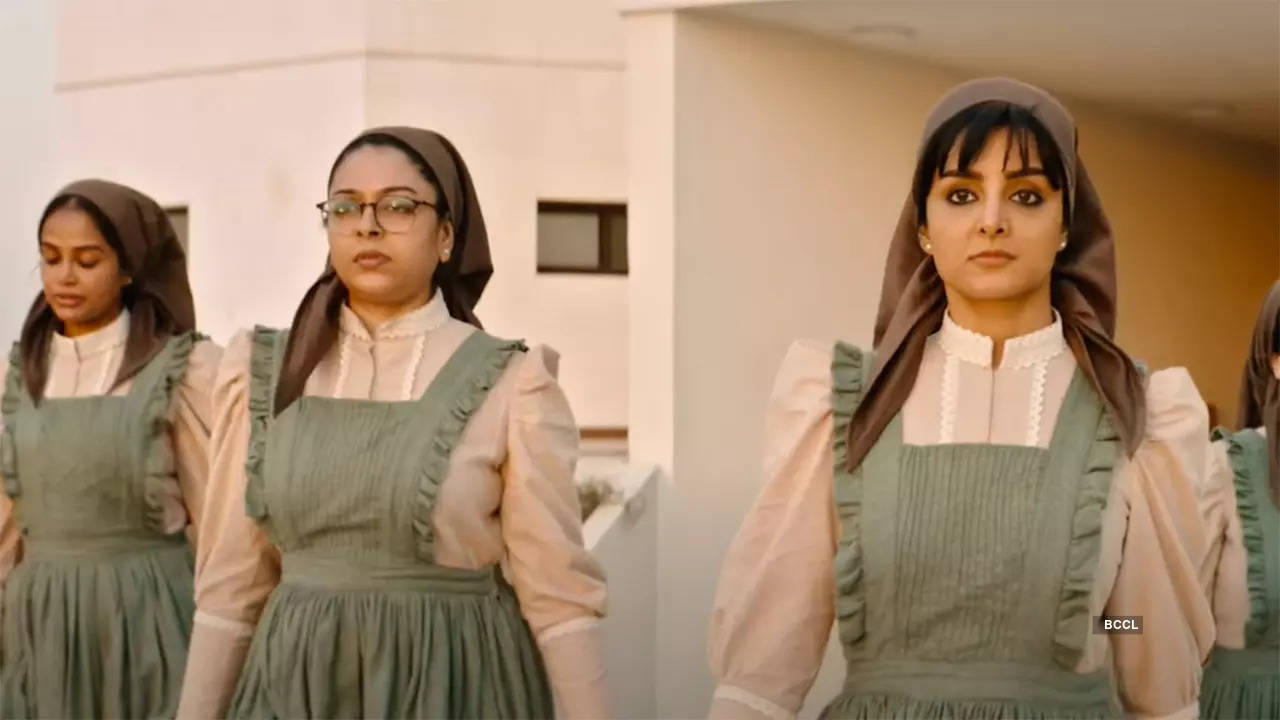Instead of narrating the chronological eventful life of the first Muslim theatrical actor Nilambur Ayisha, director Amir Pallikkal concentrates on a phase in her post-theatrical era where she acts the role of a gaddama (maid) for the first time in her real life to meet both ends, for a royal household in the kingdom of Saudi Arabia.
Theatrical element in biopic narratives: A fresh take on Nilambur Ayisha’s life
The film Ayisha brings novelty in the regular way of biopic narratives. This mode encourages the audience to learn more about the inspirational life of Nilambur Ayisha by giving an overall glimpse and significance of the character while focusing on the theatrical element more. In this way, the film tries to tell the stories of two different women from varying times and spaces and both of them intersect with the central character Ayisha performed by Manju Warrier.
Once a bullet was fired at Nilambur Ayisha while performing, forcing her to get down from the stage because she was a Muslim woman in a male-dominated industry. Luckily, the bullet missed her, but it damaged her hearing system, and in due time, she put an end to her life on stage. She was married at thirteen and had to get rid of her husband before knowing that she was pregnant. She was a single mother since then in raising the child and later a grandchild too in the midst of communal ostracisation and socio-cultural distaste.
The film also attempts to talk about the sisterhood of the domestic helpers in the royal household in spite of their unlikeness in race, language and culture. They stick to each other and use their amicable relationship to resist the common enemy within themselves. By detailing the lifestyle and restriction of freedom they face in the workplace, the movie inquires into the gaddamas in the Middle East.
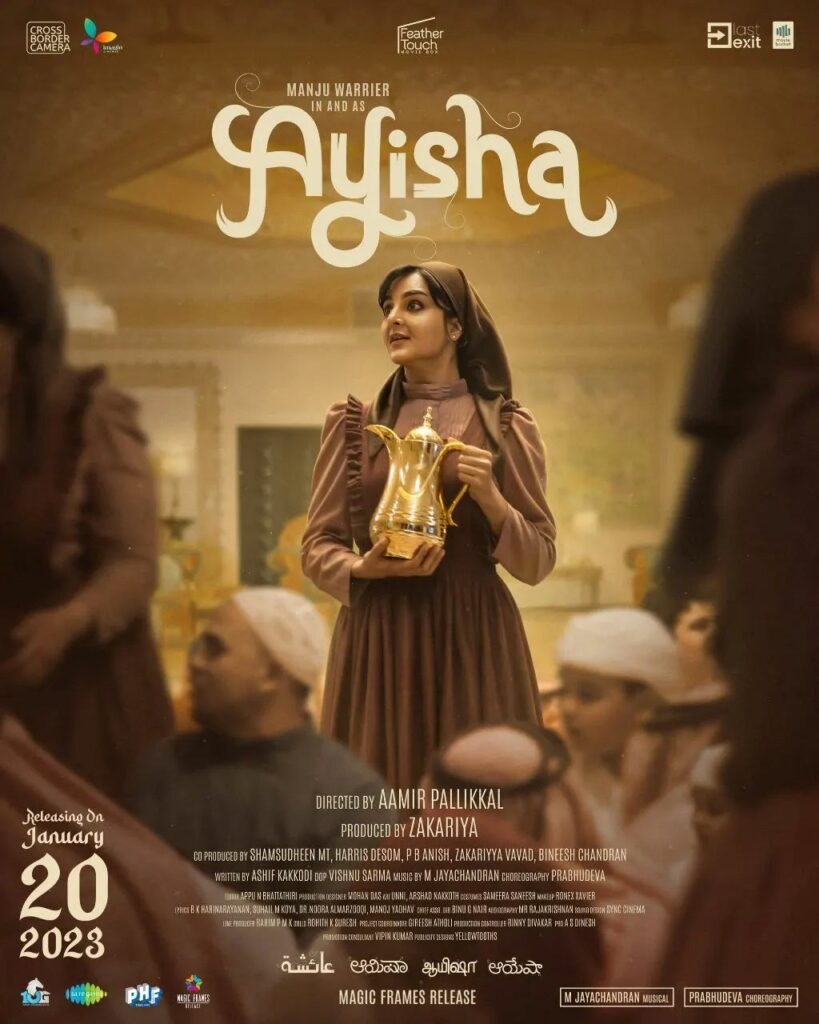
There are numerous times when moments in the movie break the conventional presumptions about gender roles and offer a nuanced and compassionate portrayal of the struggles faced by women in a patriarchal society. The film starts with her courageous undertakings against the powerful patriarchal authorities in Mumbai and later in Riyadh. The scene where she is risking her own life stops a violent criminal mafioso from physically abusing a working woman, is also an instance of this.
Also Read: Netflix’s Indian Matchmaking Season 3 Reinforces Caste, Class, And Privilege Explicitly
Ayisha and Manju Warrier: Stories of resilience and determination
Director’s choice of casting Manju Warrier as Nilambur Ayisha was a significant decision in the making of Ayisha. There are various similarities in the lives of both Warrier and Ayisha since both were separated from their marriage and accosted the offences of the misogynistic public for being in the field which ‘the convention’ doesn’t allow.
We can spot the genesis of feminist activism in performing arts from the time when Ayisha started her career, as the female roles in stage dramas were performed by male actors. Women were not allowed to appear on stage. Ayisha suffered a lot from religious extremists for being exposed to the public. She was among the handful of women who were a part of stage plays and films. Most of them were socially relevant and political plays, backed by the Communist party in Kerala.
We can spot the genesis of feminist activism in performing arts from the time when Ayisha started her career, as the female roles in stage dramas were performed by male actors. Women were not allowed to appear on stage. Ayisha suffered a lot from religious extremists for being exposed to the public. She was among the handful of women who were a part of stage plays and films. Most of them were socially relevant and political plays, backed by the Communist party in Kerala.
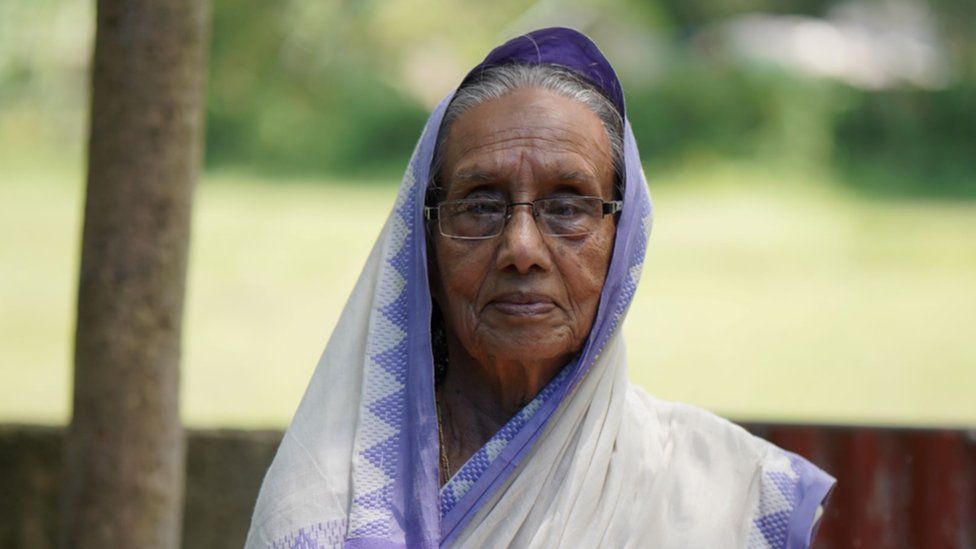
Source: BBC
Once a bullet was fired at her while performing, forcing her to get down from the stage because she was a Muslim woman in a male-dominated industry. Luckily, the bullet missed her, but it damaged her hearing system, and in due time, she put an end to her life on stage. She was married at thirteen and had to get rid of her husband before knowing that she was pregnant. She was a single mother since then in raising the child and later a grandchild too in the midst of communal ostracisation and socio-cultural distaste.
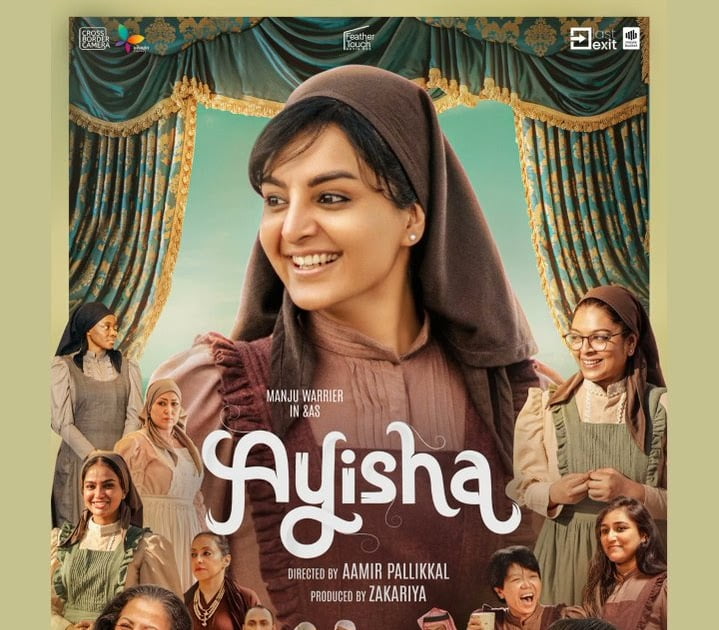
Acting/performing and the communist movement are the core areas where she located herself in life. When Kalinga theatres tried to expel her from the body, she bid goodbye to her acting life and was forced to migrate to the Middle East as a gaddama. The movie focuses on her twenty years of break from her acting career for a housemaid job abroad to provide for her family.
The director of the film, Amir says in an interview that this hiatus was the reason why Ayisha did not receive as many accolades as her contemporaries like Kaviyoor Ponnamma and Sukumari Amma in the Malayalam movie industry. And that is why he is considering this period of break in her acting life as the subject for the movie over the entire life which is already out there in many forms.
The director of the film, Amir says in an interview that this hiatus was the reason why Ayisha did not receive as many accolades as her contemporaries like Kaviyoor Ponnamma and Sukumari Amma in the Malayalam movie industry. And that is why he is considering this period of break in her acting life as the subject for the movie over the entire life which is already out there in many forms. It is so sad to relate that Manju also had an interval from her film career due to an unsuccessful marriage. Her choice of script and performance in the second innings shows that there is nothing affected by her talent by the gap of more than a decade and family life, unlike most of her contemporaries.
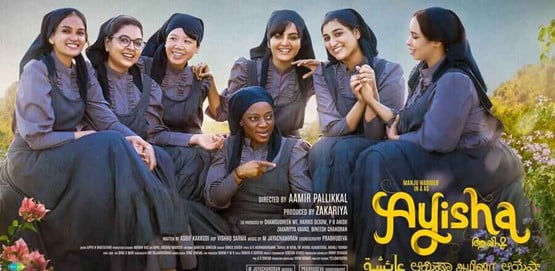
More than the lead role, some scenes in the movie are capable of elevating Ayisha into a Lady superstar. Her dealings with ruffians in Mumbai and the dialogue delivery while resigning from her position in the communist drama association in Kerala are examples of her vigorous acting.
Intimacy and vulnerability: Portraying women’s emotions
There are very few movies out there which deal with women’s intimate relationships with one another. In this movie, the intimate and emotional relationship between women is portrayed well through the sensational fondness between the matriarch of the royal palace and the servant. Amir shows the authority and power of the royal palace as revolving around the matriarch Mama, in contradiction to the perceived notion about the kingdom where the absolute monarchy is practised. All the other members of the family take the decision of Mama as final.

Mama was strong enough to choose her partner herself against the custom and tradition and the scene in the train, in which they meet for the first time, is impactful to detail her character as a matriarch.
The core part of the movie is the relationship between Ayisha and Mama performed by Mona Essay. They have amazing chemistry in their affinity. Their nexus breaks the stereotypical presumptions of women characters on screen, especially as mothers, romantic partners, sisters and wives. Mama reveals to Ayisha at the peak of their relationship that the beginning of their bond was like the way when she first met her soulmate, Nasar, she knew that this person is going to stay with the rest of her life.
The core part of the movie is the relationship between Ayisha and Mama performed by Mona Essay. They have amazing chemistry in their affinity. Their nexus breaks the stereotypical presumptions of women characters on screen, especially as mothers, romantic partners, sisters and wives. Mama was going through her last days of life ailing and counting the remaining days. They shared a deep and emotional relationship with each other having a parallel past of lost love and longings. Mama reveals to Ayisha at the peak of their relationship that the beginning of their bond was like the way when she first met her soulmate, Nasar, she knew that this person is going to stay with the rest of her life.
Also Read: Looking At ‘B 32 Muthal 44 Vare’: A Queer Malayali Perspective
In the meantime, they share their pain, commune with each other and be each other’s support system. They exchange comfort, solidarity and unsaid emotions about what it means to be a woman, and Mama compares her ailing old age to the irrelevance of the actor after she leaves the limelight.
